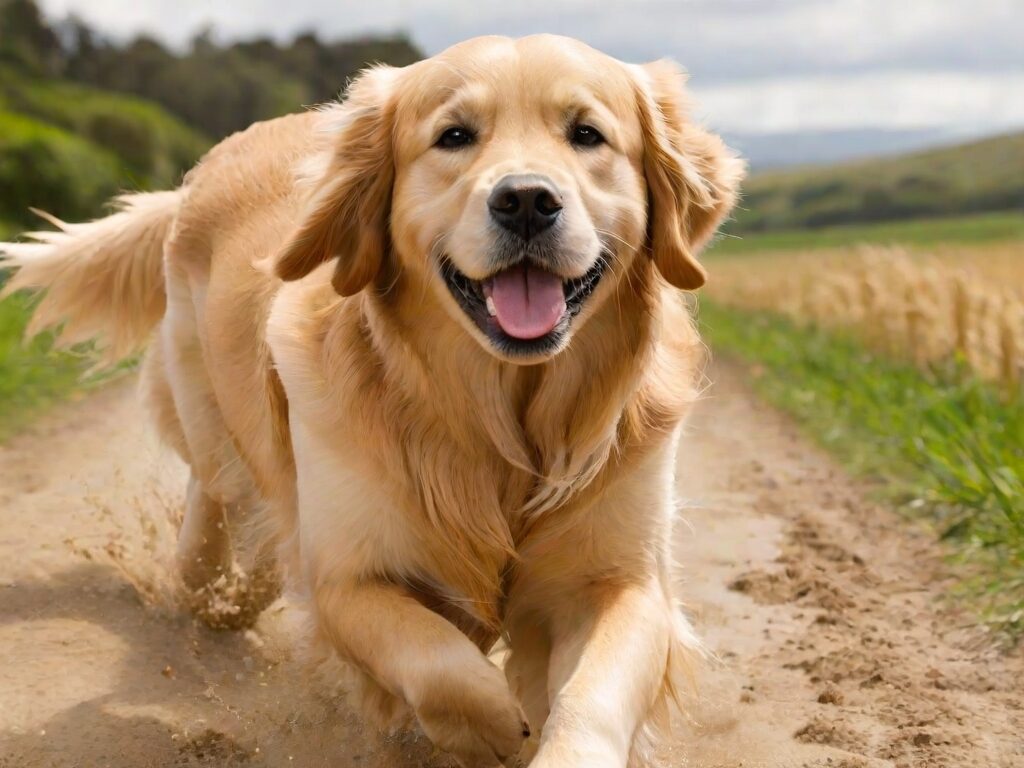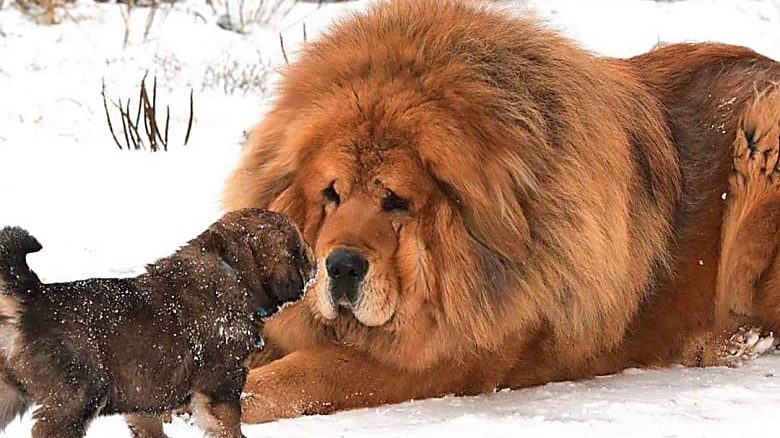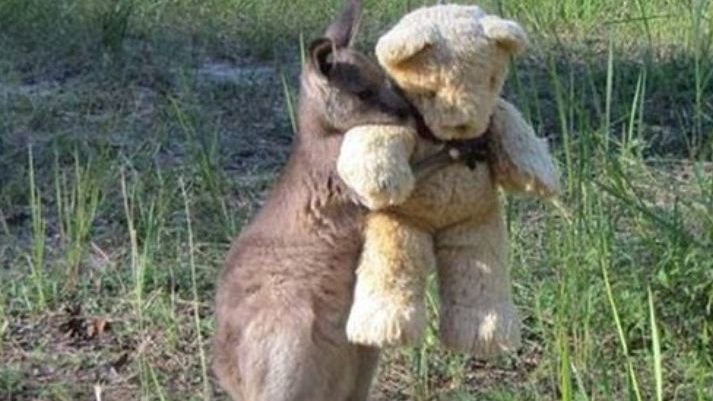The adorable video captures a sweet moment between a Golden Retriever puppy and a baby. The puppy’s playful actions unintentionally make the baby cry, but what follows is incredibly heartwarming. In an apparent display of remorse or understanding, the Golden Retriever puppy attempts to apologize.
This heart-melting interaction showcases the emotional intelligence and empathy that dogs, especially breeds like Golden Retrievers, often exhibit. Dogs can pick up on human emotions and react accordingly, and in this case, the puppy seems to recognize that its actions led to the baby’s tears.
The video not only highlights the innocence of the puppy’s behavior but also emphasizes the strong emotional connections that can develop between dogs and humans, even at a very young age. It’s a testament to the gentle and caring nature of Golden Retrievers, making them beloved companions in family settings.
Golden retrievers, renowned for their friendly and patient nature, are often cherished family pets. Yet, when a baby enters the picture, concerns about how the dog will react can arise. In this comprehensive guide, we delve into the interaction between golden retrievers and babies, offering insights into their general behavior, temperament, safety concerns, health factors, and training tips.

Golden Retrievers: General Behavior Around Babies
Golden retrievers boast a gentle and calm disposition, making them suitable for families with children. Their natural protectiveness and tolerance render them excellent family dogs. Here’s a glimpse of their behavior around babies:

- Calm and Gentle: Golden retrievers tend to display calm and gentle behavior around babies, often assuming a protective role.
- Affectionate: Known for their affectionate nature, golden retrievers express their fondness for babies through licking and cuddling.
- Playful: With their playful instincts, golden retrievers may engage in play with babies. Supervision is crucial to prevent accidental injuries.
- Patient: Golden retrievers exhibit patience, making them ideal companions for families with young children.
While these traits are common, individual dogs may vary. Owners should observe their dog’s behavior and adjust accordingly for a safe and comfortable environment.
Golden Retrievers: Temperament

The friendly and affectionate temperament of golden retrievers makes them exceptional family dogs. Their high intelligence and responsiveness to training contribute to their suitability for families with babies. Additionally, their energy levels, when properly managed, enhance their compatibility with children.
Safety Concerns
Despite their generally good nature, precautions must be taken when introducing golden retrievers to babies. Key safety considerations include:
- Supervision: Never leave a golden retriever and a baby alone, irrespective of the dog’s history with children.
- Signs of Discomfort: Watch for signs of stress or discomfort in the dog, such as growling or avoiding the baby.
- Training and Socialization: Proper training and socialization contribute to a well-behaved golden retriever. Even well-trained dogs may exhibit stress, emphasizing the need for supervision.
- Avoid Rough Play: Golden retrievers’ love for play must be monitored around babies to prevent rough play that could lead to accidents.
Health Factors
While generally healthy, golden retrievers are susceptible to certain health conditions. Cancer rates are a concern, requiring vigilance for long-term interactions with babies. Hip dysplasia screening is vital due to potential pain and mobility issues. Stress and anxiety, factors affecting both dogs and humans, necessitate close monitoring.
Training Your Golden Retriever

Proper training is essential to ensure golden retrievers are safe around babies. Tips for effective training include:
- Basic Obedience: Commence training with basic commands like sit, stay, come, and heel to establish your leadership.
- Socialization: Expose your puppy to various stimuli to foster a well-adjusted adult dog.
- Teach Gentleness: Train golden retrievers to be gentle, discouraging rough play and rewarding calm behavior.
In conclusion, the interaction between golden retrievers and babies can be harmonious with proper understanding, supervision, and training. This guide equips families with the knowledge to foster a safe and enjoyable relationship between these beloved dogs and their youngest family members.
Conclusion
In conclusion, golden retrievers have the potential to be wonderful companions for babies and children when introduced and trained appropriately. Their friendly and gentle nature makes them well-suited for family environments. However, it’s crucial to recognize the individual temperament of each dog, as well as to acknowledge that dogs, regardless of breed, are sentient beings with their own set of behaviors and reactions.
To ensure a harmonious relationship between golden retrievers and children, careful supervision during interactions is imperative. Teaching children to treat the dog respectfully, avoiding actions that might provoke discomfort, is vital for both the child’s and the dog’s safety.
While golden retrievers are generally known for their amiable demeanor, responsible pet ownership involves early socialization, regular exercise, and mental stimulation to prevent potential behavioral issues. It’s essential to be mindful of a dog’s boundaries and provide a positive environment to foster a strong bond between the dog and the family.
In essence, the key to a successful and happy relationship between golden retrievers and children lies in responsible ownership, proper training, and mutual respect between both parties. Prioritizing the safety and well-being of both the child and the dog is paramount for creating a loving and lasting companionship.





